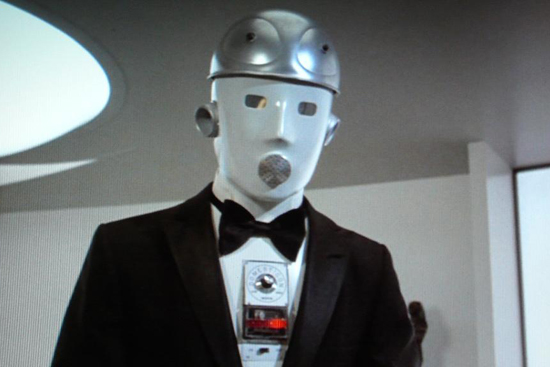A recruiter approached me to do some business development work for a tech company as a side gig. I told him to setup a face-to-face meeting to discuss the opportunity with the Sales Director.
Oddly enough, the Sales Director told the recruiter that he didn’t like “My Kind Of People” and thought that people in Financial Services were weak salespeople.
I assertively went back to the recruiter and told him my background and skillset, and asked him to chat again with the Sales Director.
This time the Sales Director came back and asked for the following:
1. What companies had I worked with?
2. What end-to-end sales opportunities had I done myself?
3. What partnerships had I been involved with?
For someone running a sales business, I was surprised by the response.
“There’s no list of computer-generated questions that will attract a quality salesperson to a business”
Sales is about human interaction.
The only way you’ll ever know a candidate’s ability to influence is by meeting them in person. The moment you try and screen out quality candidates that come highly recommended, with genuine references, you’re screwed!
Fifteen minutes with a salesperson will tell you more than 6 hours of recruiter/internet research.
Don’t treat salespeople like revenue generating robots – otherwise, you’re F**KED.
The treatment I received from this company made me feel like a robot. It was if they were asking the following:
 Can you comply with blunt orders because our private equity firm needs to make money?
Can you comply with blunt orders because our private equity firm needs to make money?
Why are you challenging my emails? Just be a robot and follow orders.
The moment a salesperson gets a sniff that you only care about how much money they can make you, you’re up sh*t creek without a paddle as we like to say in Australia, mate.
Whether we like it or not salespeople want to be treated like human beings – just like everyone else. We’re searching for a human connection and too much focus on “NUMBERS, NUMBERS, NUMBERS” shows a lack of understanding when it comes to the science of achievement.
Obviously, salespeople care about making money, but just looking at spreadsheets all day with revenue numbers won’t tell you the whole story. Revenue is affected by:
– The culture
– The other sales members
– The product or service being sold
– Perception of the company from the outside
– Perception of the company on social media
– The way staff treat their customers
– The values of the organization
– How the company gives back to the community outside of just “PROFIT, PROFIT, PROFIT”
The simple fact is that if you don’t understand the non-revenue factors of a business like people, you shouldn’t be in sales – you should be counting widgets in a factory and filling out a card that says “Successfully shipped to customer, next order please.”

Discrimination is an ugly business – especially in sales.
What this Sales Director showed me was just how naive people can be when they discriminate. Your business could be missing out on amazing sales talent just because you’re using binary decision-making skills to find talent.
Quick story:
The best salesperson I ever hired worked for one of my companies. He came to the interview wearing a stained red jumper, old faded cargo pants, a pair of tradesman boots and a ciggie in his mouth. He was currently working for a charity cold-calling people and asking them for money.
 He was homeless and living in his car – which I later found out. After four weeks working for us, he made zero sales. We went down to fire him one Friday afternoon and he’d gone home early. We decided to do it on Monday instead.
He was homeless and living in his car – which I later found out. After four weeks working for us, he made zero sales. We went down to fire him one Friday afternoon and he’d gone home early. We decided to do it on Monday instead.
On Monday morning I went to the Snake Pit (the name of the sales room at the time) to find him. To my surprise, I interrupted him writing his sales on the whiteboard which he’d been saving until all the contracts were signed. In 4 weeks he’d outsold the entire sales team!!!
He went on to be the top-performer working only a few hours per day because of his incredible sales skill. Later on, I found out this man used to be worth more than $100M and he went on to be a friend, mentor, top salesperson and the best guy I’ve ever met in sales.
On face value, he looked like a bum and was unimpressive. My immaturity at the time (and youth) nearly made me miss the best candidate I was ever going to find.
Discrimination and pigeon-holing people is a nasty business. The cost of missed opportunity by being a total idiot and ignoring people based on surface level nonsense is a game you don’t want to play.
Algorithms and surveys can’t determine sales talent – people do that!
The bigger the ego, the bigger the problem later on.
I remember a sales guy I worked with who was nicknamed “The Maverick.”
He had the biggest ego you could ever imagine and at the start, it was a little funny. As time went on, his ego got even more out of control.
He was hitting on the female staff, upsetting the other salespeople, trying to steal sales, undermining management for his own selfish interests and doing anything he could to look good.
An out of control ego at the start should be a massive red flag. It only gets worse later on. Selfish pursuits of power and success always end in tears – even in sales. High-performing salespeople are leaders in the making and want to duplicate their qualities in the up and coming sales staff.

That doesn’t mean confidence should be ignored.
Yes, a heavily inflated ego is a problem in sales but lack of confidence is too. You want some level of confidence so that when you put a newly hired salesperson into the field, they have the guts, belief in themselves and determination to succeed.
You can’t spoon-feed a salesperson; they need the ability to have control of their destiny. Control takes confidence to wake up every day and execute on an outcome.
Order takers vs. salespeople.
I want to dispel a myth: there’s nothing wrong with order takers. The field of sales often put down people who work in big companies and take orders.
There’s a need for these people though in most businesses. These individuals can follow orders, sell off a script, are often cheaper to hire and can use the brand of the company to sell.
Salespeople, on the other hand, can use rapport and human interaction to make a potential customer feel something about a product or service. This feeling can then be translated into real business and a repeat customer down the line.
Neither the salesperson or the order taker are evil people; they just have different skills and perform a different function. I’ve even seen order takers be trained into salespeople later on if they have the growth mindset to believe they can crossover to the dark side.
A word on execution.
There’s plenty of great salespeople out there but what separates the good from the incredible (the same goes for entrepreneurs) is execution. We can all get a client excited for a few brief minutes but translating that into revenue for the business and an ongoing relationship is much harder.
Hiring for execution as well as sales ability is an important combination. When the skill of execution is lacking, you’ll often have salespeople that fall into the trap of making big promises and expecting “The Rest Of The Business” to deliver on these promises.
This lack of ownership creates lots of sales business and a poor customer experience which does more damage. The best way to find salespeople who can sell and execute is to understand how they manage their day – in other words, can they demonstrate the skill of productivity.
An easy hack I use is to take a look at their dairy for the last few weeks. Just because they are back-to-back with meetings, does not mean they are productive. Most sales meetings are unproductive and don’t lead to any tangible business outcomes.
I look for blank space in diaries, and salespeople that time-box slots in their diary for thinking and empty space. These rare gems do less, have time to see shifts in the market and can see the broader vision of the business.
A gun salesperson can say NO.
Not all business is good business. Some sales opportunities cost more than they bring back to the company in value.
A high-performing salesperson can focus on good business and say no to business too. A weak salesperson says yes to every sales opportunity which ultimately means they’ll drown themselves in unproductive work later on.
No business can be all things, to all customers.
Avoid being deceived by looks.
Any salesperson can buy a nice suit, roll up in a luxury car, drink a cafe latte and talk a big game. Don’t let looks cloud your judgment.
“Looks can be faked; human nature and emotional intelligence cannot be. Phenomenal salespeople understand these two traits like the back of their hand”
Empathy and compassion wins every time in sales.
Understanding how a potential salesperson thinks is about getting inside their head. You can do this through the use of deliberate questions that focus on whether they can be empathetic and compassionate.
Given that salespeople all deal with humans, the ability to be aware of a person’s feelings will be the guiding skill they need to influence an individual to make a decision.
“People buy off feelings and so you want your salespeople to be experts at feeling and understanding human emotion”
All sales solutions solve a problem and with any challenge comes emotion. If you solve a problem as a salesperson but don’t understand the emotion, you’ll probably lose the deal. The feelings and emotions attached to the problem drive the outcome more than the problem itself.
“Again, machines can solve problems; humans solve the emotions and feelings that come bundled with the problem”
Coach-ability and open-mindedness.
The Sales Director that missed out on hiring me was focused on the fixed results I’d already achieved. The thing is that the best salespeople can be coached and are open-minded. These two skills are fundamental for the following reasons:
– Industry changes quickly so a fixed mindset will ignore these changes
– Salespeople that know everything hold business back
– The problem a salesperson can solve is often missed if they’re not open-minded enough to see it
– The problem can be solved using the wrong solution if the salesperson has a fixed mindset
Experience can sometimes be the worst attribute.
 Some of the worst candidates I’ve ever interviewed come with five or more years’ experience. This is because experience can often lead a salesperson to adopt a fixed mindset. Too much experience can cause a candidate to want to do things the way they’ve always been done.
Some of the worst candidates I’ve ever interviewed come with five or more years’ experience. This is because experience can often lead a salesperson to adopt a fixed mindset. Too much experience can cause a candidate to want to do things the way they’ve always been done.
Taking someone who’s got no experience can be a blessing in disguise.
A famous example of this is the founders of Airbnb. They had no experience in the hotel industry which is how they were naive enough and bold enough to use skills from other industries like tech to completely rethink the industry.
Maybe the salespeople you’re hiring with years of experience are the problem.
The answer is there is no perfect sales candidate.
I know what you’re thinking: “Damn it Tim! Why do you keep speaking so much truth?”
Just like there is no easy way to predict which startup will become the next billion-dollar unicorn -there are so many factors to consider and sometimes you’ve got to take a chance and stop thinking you know it all.
None of us have all the answers and your predisposed bias of the past is holding you back from hiring perfectly good candidates.
If you want to increase your productivity and learn some more valuable life hacks, then join my private mailing list on timdenning.net
from
https://addicted2success.com/success-advice/the-only-way-to-attract-and-maintain-high-performing-salespeople-understand-how-they-think/

No comments:
Post a Comment